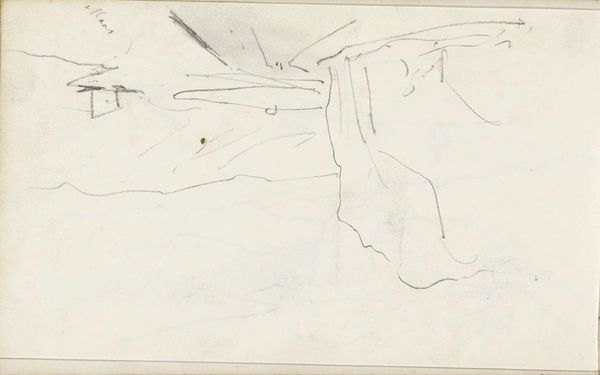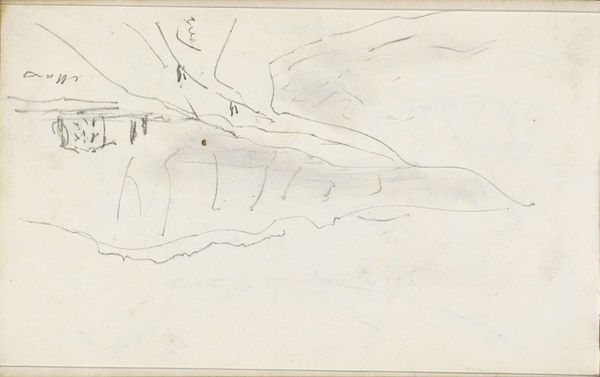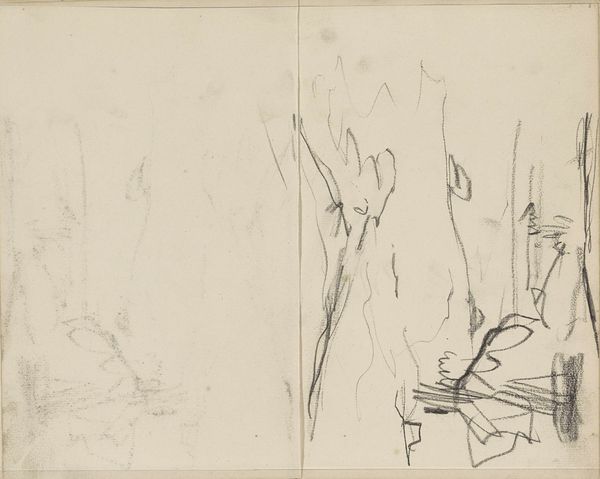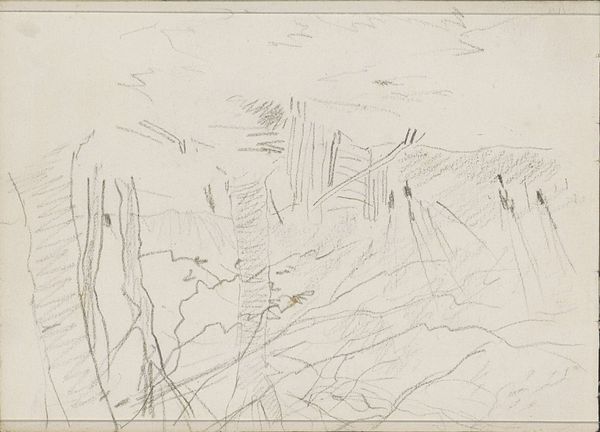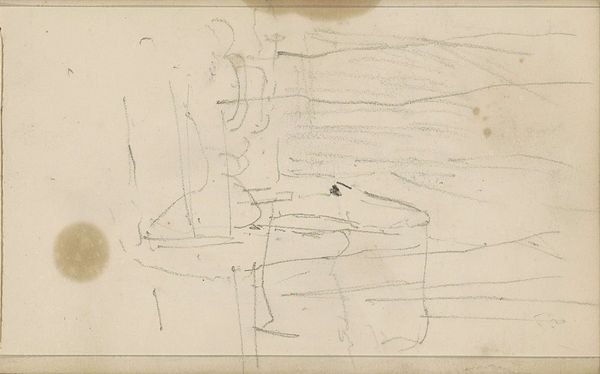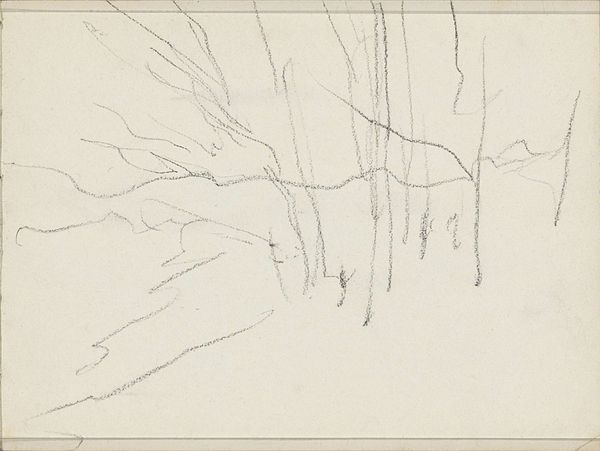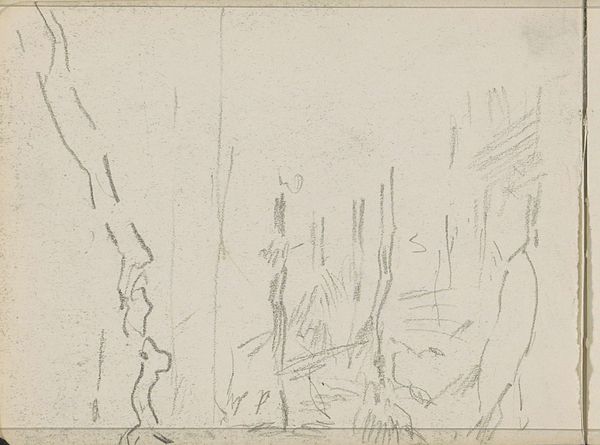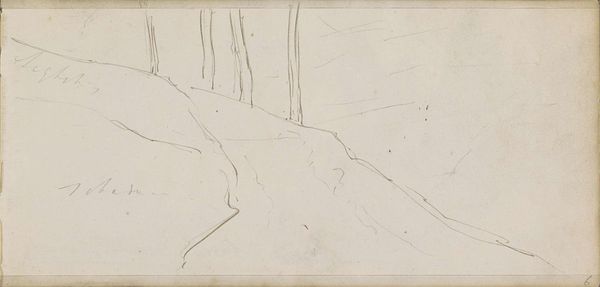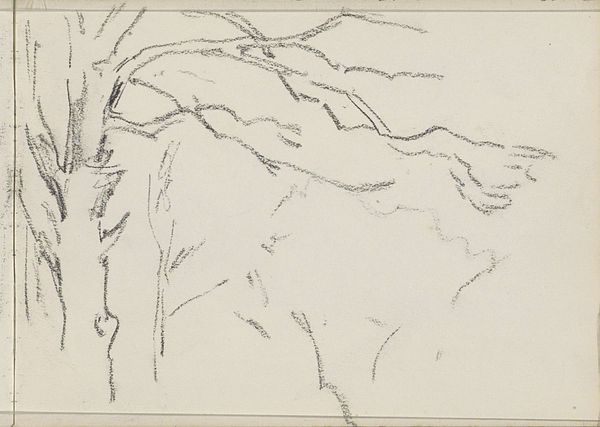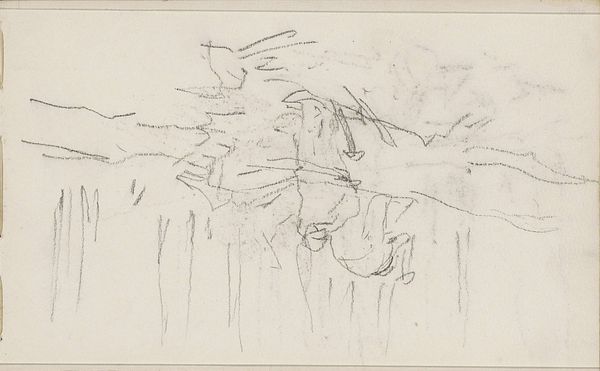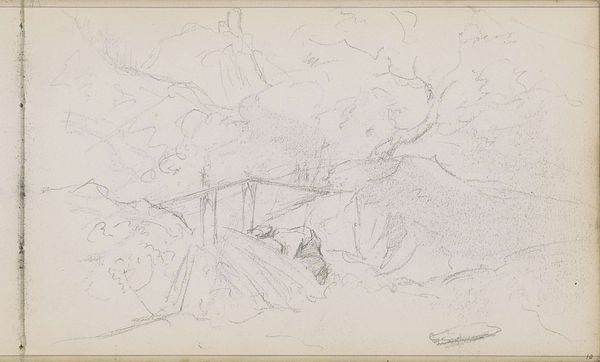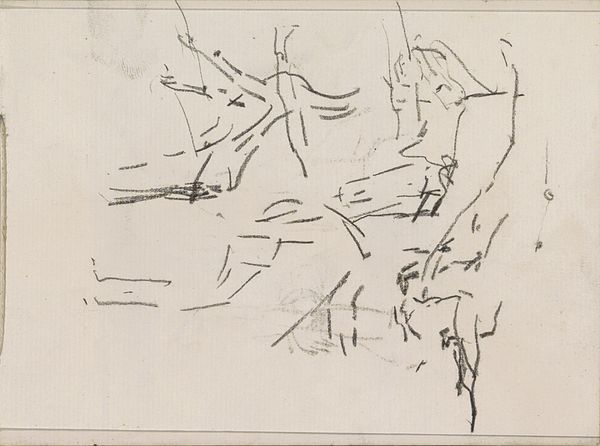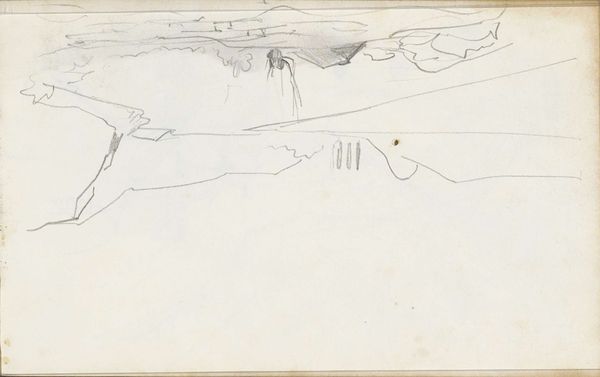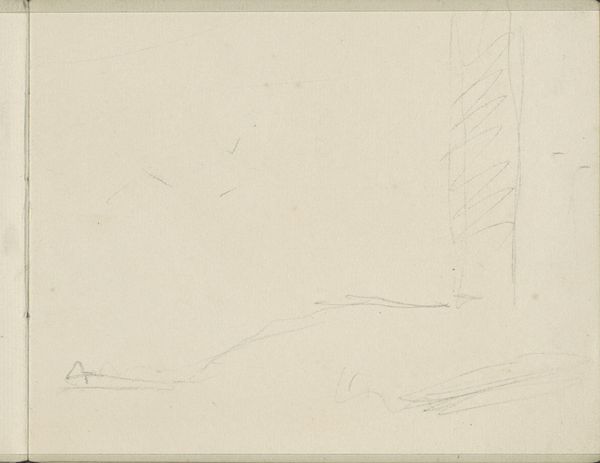
#
amateur sketch
#
light pencil work
#
incomplete sketchy
#
personal sketchbook
#
idea generation sketch
#
forest
#
ink drawing experimentation
#
pen-ink sketch
#
sketchbook drawing
#
sketchbook art
#
initial sketch
Copyright: Rijks Museum: Open Domain
Curator: This is an intriguing piece titled "Bos," created sometime between 1892 and 1913 by Bramine Hubrecht, held here at the Rijksmuseum. It appears to be a pencil sketch. Editor: It’s delicate, almost ethereal. The pale lines give it a transient quality, like a memory fading at the edges. It makes me feel peaceful, but with an underlying sense of melancholy. Curator: Melancholy is an interesting word for it. It definitely has a contemplative feel. These are the artist's initial ideas jotted in a sketchbook. Looking at the image from a cultural history perspective, the proliferation of sketchbooks at the time suggests an increasing accessibility and importance placed on the artist's individual vision and observation of the world. Editor: Yes! I'm drawn to how the trees are rendered not as solid forms, but as suggestions. Trees have always held immense symbolic weight; representing life, growth, connection, wisdom. This sparse, almost ghostly rendering gives those archetypal symbols a kind of tentative, questioning quality. Is this the same solid foundation, the same arboreal wisdom? Curator: That tentativeness, I think, speaks to the artist’s process. It’s not a finished work meant for display, but rather a private exploration. Sketches such as this became increasingly valuable to study because they represent the unfiltered vision of the artist as she interacts with her subject in real time. Editor: You can feel that intimate interaction. Incomplete though it may be, that’s precisely what draws me to it. I think the sketchy quality captures a particular type of seeing – of fleeting observation, impressions that resonate and then slip away, leaving just a faint impression on the page... and on the viewer, wouldn't you agree? Curator: Yes, these raw depictions of landscape offered fresh perspectives for the artist that ultimately became the vocabulary to challenge art conventions. Editor: Exactly, and speaking to the trees themselves – whether it's the Tree of Knowledge or the world tree Yggdrasil, they're often symbolic representations of deeper structures... The bare simplicity and pale renderings hint that, for the artist, that foundation or those connections felt… fragile? Curator: I find it intriguing to consider what became of these initial lines of thought and where the artist may have developed these impressions. It speaks to our own need to revisit these formative moments, for the understanding of our past. Editor: A wonderful way to think about it, yes, perhaps our impressions are forever a palimpsest of early attempts, of fleeting sketches never fully erased. Thank you.
Comments
No comments
Be the first to comment and join the conversation on the ultimate creative platform.
